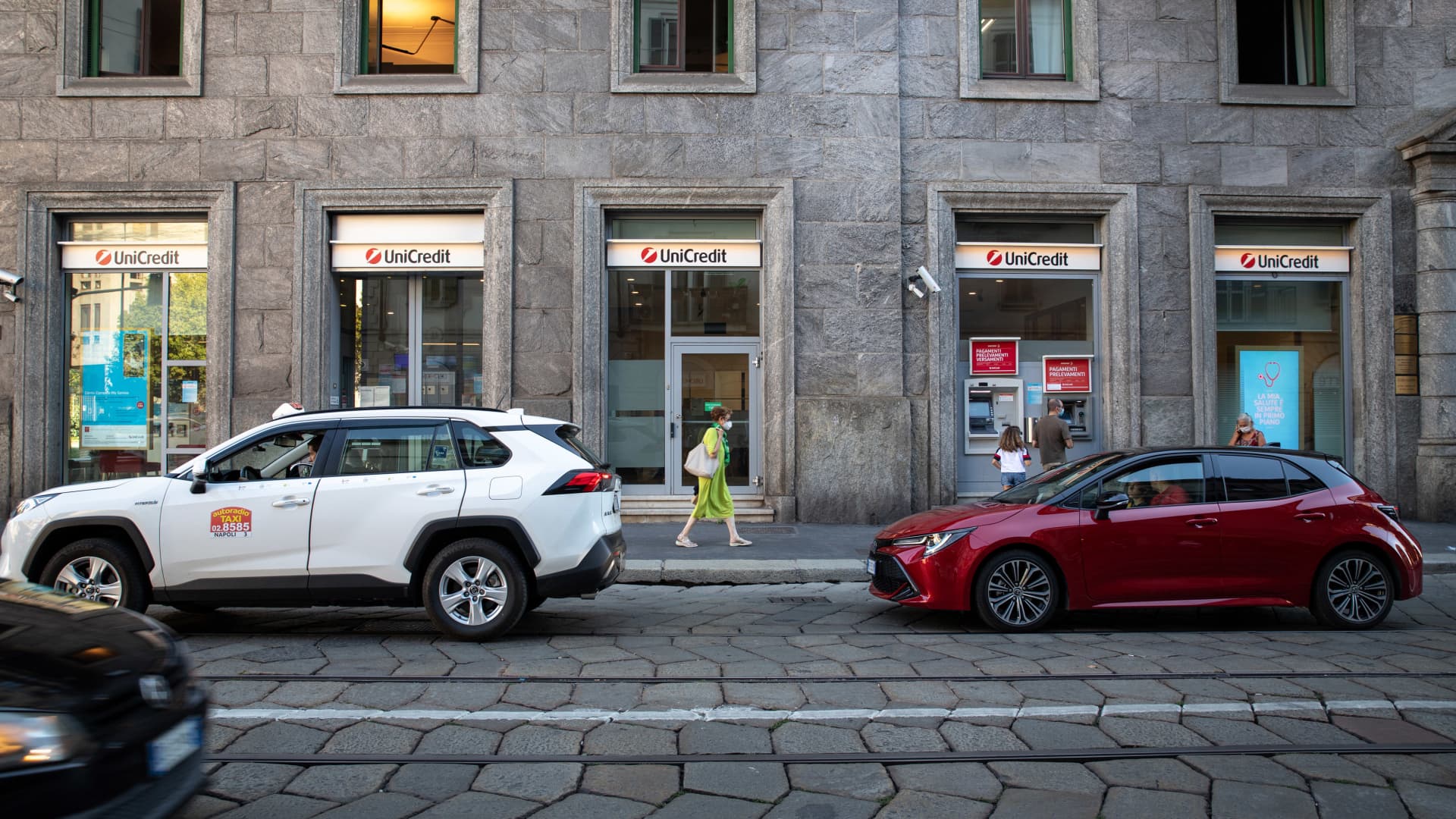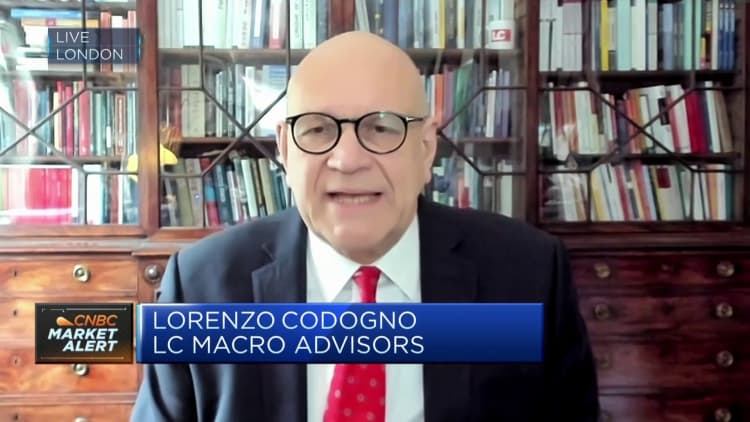
A pedestrian wearing a protective face mask walks in front of a UniCredit SpA bank branch in Milan, Italy, on Thursday, Sept. 3, 2020.
Camilla Cerea | Bloomberg | Getty Images
Italian bank shares rebounded on Wednesday after the government watered down a surprise windfall tax on excess profits announced earlier this week.
City analysts estimated that the Monday announcement of a 40% tax on excess income derived from higher interest rates in 2023 would deal a 19% blow to Italian lenders’ net profits for the year.
Shares of BPER Banca, Banco BPM, Intesa Sanpaolo, Finecobank and UniCredit all fell sharply during Tuesday trading wiping out more than 9 billion euros from the market capitalization of the Italian banking sector.
In a bid to calm market jitters, the finance ministry on Tuesday night said it would cap the levy on net interest income at 0.1% of risk-weighted assets — just a fifth of the level that Citi had assessed it could reach.
Finecobank shares recovered 6% by mid-morning on Wednesday, while Unicredit and BPER Banca were both up by more than 4%. Banco BPM and Intesa Sanpaolo each gained more than 3%.
Gianmarco Rania, head of equities at Banor Capital, said that the chaotic week for the finance ministry would not have a lasting negative impact on market sentiment towards the Italian banking sector. He told CNBC on Wednesday that it was simply a “badly communicated fiscal measure” and the government “did not really make the right calculation.”
“Initially, right after the announcement of the windfall tax on Monday evening, the government reiterated that they were expecting to raise around 3 billion euros in tax, but then the market realized that the numbers didn’t add up,” Rania explained.
“During yesterday’s session, analysts started to make their own calculations and realized that if the measure was to be fully impacted, the actual proceeds for the Italian government would have been well in excess of 3 billion [euros] — around 4.5, 5 billion.”

Realizing it could obtain the 3 billion euros required to enable it to cut taxes and offer financial support to mortgage holders, the finance ministry then introduced the cap — which will mean a significantly lower negative impact on 2023 earnings, Rania said.
“If fully applied under the initial government conditions, we would have between 20% and 25% impact on 2023 earnings for small and mid-cap banks, and between 8% and 15% for the large banks,” Rania estimated.
“With these changes, now we are talking about numbers which are less considerable, more under control, so we are talking about 10, 12% earnings impact for the small, mid banks on 2023 earnings, and something not really meaningful for the large banks in the area of 3-5%.”
Rania noted that much of the downward momentum of Tuesday in the stock prices of banks was down to concerns about shareholder remuneration, which has long been a draw for investors looking for consistent returns.
“The Italian banking system on average returns to shareholders in the area of 11, 12% yield if you include dividends and buybacks, so clearly yesterday this was heavily under scrutiny,” he said.
“After the adjustment of last night in the cap, most of the banks are confirming their shareholder distribution policies, in particular the larger banks — UniCredit and Intesa.”
